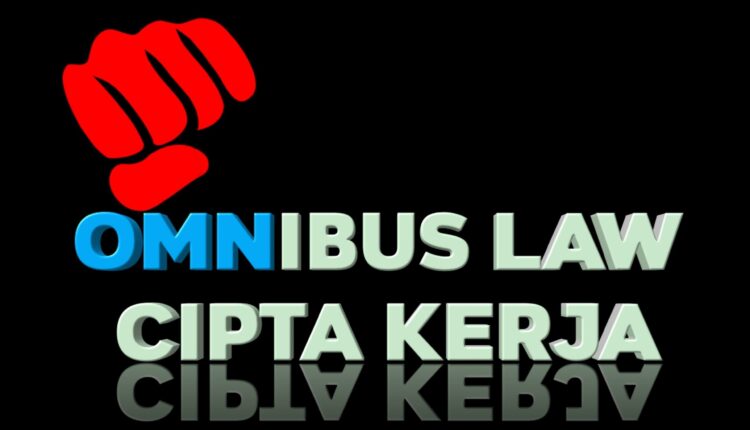The Job Creation Law Facilitates Business Licensing
By: Angga Gumilar ) *
The DPR has just passed the Job Creation Law (UU Ciptaker ) as a breakthrough to cut hyper- regulation that has been stifling investment . One of the clusters in the Omnibus Law has many advantages, including facilitating licensing and business.
During his leadership period , President Jokowi often received complaints from the public regarding the convoluted process of establishing a business.
So that the government took the initiative to simplify regulations and cut complicated licensing related to business establishment. Firmness in cutting bureaucratic processes is designed with a formula called the omnibus law.
This of course counters the notion that the government is tormenting the people with the Ciptaker Law . This is because these regulations have the aim of eradicating overlapping regulations, especially those concerning licensing.
One example of convenience is the process of creating a PT or limited liability company. Because there is no more minimum capital limit . In addition, the formation of cooperatives is also getting easier. It only takes nine people to set up a cooperative. This makes it clear that the Job Creation Law is a breakthrough for Indonesia.
The government also has a breakthrough so that the regulations written in the Job Creation Law can make it easier for entrepreneurs to build a limited liability company (PT). One of the points made easier is the creation of a PT with no minimum capital.
Minister of Cooperatives and SMEs, Teten Masduki stated that his party wants in the future, UMKM players can be connected to banking institutions, including connections to taxation and BPSJ.
He said that other transformations are as much important being targeted, namely about how the transformation of the informal sector into the formal. Therefore, we really provide the ease of licensing in the omnibus law of the Job Creation Law.
It needs to be done so that the business activities of SMEs are more sustainable and then they get pendapata n which is certainly better.
Teten said, in the Omnibus Law of the Job Creation Law, his party would provide all incentives to enable MSMEs to transform from informal to formal.
We need to know that the problem of Indonesia’s high cost economy is not only experienced by large manufacturing businesses, but also occurs at the MSME level.
The complexity of the bureaucracy and lengthy licensing actually has an impact on opening up opportunities for a high cost economy and business uncertainty.
Furthermore, Teten explained that MSMEs in Indonesia were not designed as a supply chain. So that access to finance is still relatively heavy even though there is a lot of financing for MSMEs.
He also hopes that by building supply chain-based MSMEs and cooperatives through encouraging partnerships with large business actors. According to Teten, this is very important.
On a different occasion, Minister of Home Affairs (Mendagri) Tito Karnavian explained the role of his ministry in the Job Creation Law, namely in the administrative cluster . He guarantees that the Job Creation Law will facilitate permits to build a business.
Tito emphasized that local governments still have the authority to administer business licenses. Only, the mechanisms and procedures in making a business license pruned as little as possibly, n.
He said that the current administration system is quite complicated, it can even take months. He compared with other countries which finished in a matter of hours.
If overseas permits can be completed in just a few hours , in Indonesia licensing can take months, this is because the bureaucracy forces entrepreneurs to get recommendations from various parties so that they are impressed by ping pong when handling them .
Tito also said that his party would identify the types of businesses whose license procedures were simplified. The identification of this type of business is expected to be completed next month according to President Joko Widodo’s direction.
One of the derivatives of the Job Creation Law is the simplification of the types and procedures of doing business in the regions, which means that there will be a government regulation to inventory and identify the types of businesses that must be simplified and the procedures like.
In his discussion , Tito will invite local government associations . So that the aspirations of the community can be conveyed through associations.
Thus, the Job Creation Law can be considered as a trigger / trigger for the birth of MSMEs or PT in the future, so that the workforce will be absorbed and the unemployment rate will decrease .
) * The author is active in the Cikini Press and Student Circle
